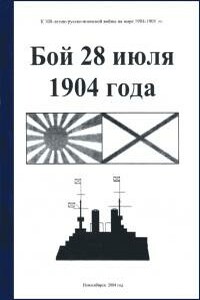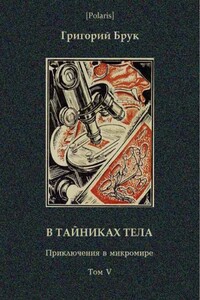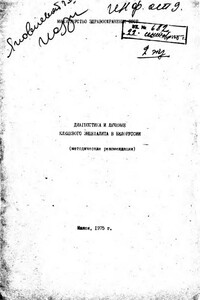Английский язык для специальных и академических целей: Международные отношения и зарубежное регионоведение. Часть 1 - [5]
Unit I. UK: from Empire to Democracy
There would certainly not have been so much free trade between the 1840s and the 1930s had it not been for the British Empire. Relinquishing>1 Britain's colonies in the second half of the nineteenth century would have led to higher tariffs in their markets, and perhaps other forms of trade discrimination. The evidence for this need not be purely hypothetical; it manifested itself in the highly protectionist policies adopted by the United States and India after they secured independence, as well as in the tariffs adopted by Britain's imperial rivals France, Germany and Russia in the 1870s and after. Britain's military budget before the First World War can therefore be seen as a remarkably low insurance premium against international protectionism. According to one estimate, the economic benefit to the UK of enforcing free trade could have been as high as 6.5 per cent of gross national product. No one has yet ventured to estimate what the benefit to the world economy as a whole may have been; but that it was a benefit and not a cost seems beyond dispute, given the catastrophic consequences of the global descent into protectionism as Britain's imperial power waned>7>>8 in the 1930s.
Nor would there have been so much international mobility of labour — and hence so much global convergence of incomes before 1914 — without the British Empire. True, the United States was always the most attractive destination for nineteenth century migrants from Europe; nor did all the migrants originate in the colonising countries. But it should not be forgotten that the core of the US had been under British rule for the better part of a century and a half before the War of Independence, and that the differences between independent and British North America remained minor.
It is also worth remembering that the significance of the white dominions as destinations for British emigrants grew markedly after 1914, as the US tightened restrictions on immigration and, after 1929, endured a far worse Depression than anything experienced in the sterling bloc. Finally, we should not lose sight of the vast number of Asians who left India and China to work as indentured>9>labourers, many of them on British plantations and mines in the course of the nineteenth century. There is no question that the majority of them suffered great hardship; many indeed might well have been better off staying at home. But once again we cannot pretend that this mobilisation of cheap and probably underemployed Asian labour to grow rubber and dig gold had no economic value.
Consider too the role of the British Empire in facilitating capital export to the less developed world. Although some measures of international financial integration seem to suggest that the 1990s saw greater cross-border flows than the 1890s, in reality much of today's overseas investment goes on within the developed world. In 1996 only 28 per cent of foreign direct investment went to developing countries, whereas in 1913 the proportion was 63 per cent. Another, stricter measure shows that in 1997 only around 5 per cent of the world stock capital was invested in countries with per capita incomes of 20 per cent or less of US per capita GDP. In 1913 the figure was 25 per cent. A plausible hypothesis is that empire — and particularly the British Empire — encouraged investors to put their money in developing economies. The reasoning here is straightforward. Investing in such economies is risky. They tend to be far away and more prone>1 to economic, social and political crises. But the extension of empire into the less developed world had the effect of reducing such risks by imposing, directly or indirectly, some form of European rule. In practice, money invested in a de jure British colony such as India (or a colony in all but name, like Egypt) was a great deal more secure than money invested in a de facto ‘colony' such as Argentina.
Speak Up
Unit I. UK: from Empire to Democracy
For all these reasons (see text A), the notion that British imperialism tended to impoverish colonised countries seems inherently problematic. That is not to say that many former colonies are not exceedingly poor. Today, for example, per capita GDP in Britain is roughly twenty-eight times what it is in Zambia, which means that the average Zambian has to live on something less than two dollars a day. But to blame this on the legacy of colonialism is not very persuasive, when the differential between British and Zambian incomes was so much less at the end of the colonial period. In 1955 British per capita GDP was just seven times greater than Zambian. It has been since independence that the gap between the coloniser and the ex-colony has become a gulf. The same is true of nearly all former colonies in sub-Saharan Africa, with the notable exception of Botswana.

Голуби, белки, жуки, одуванчики – на первый взгляд городские флора и фауна довольно скучны. Но чтобы природа заиграла новыми красками, не обязательно идти в зоопарк или включать телевизор. Надо просто знать, куда смотреть и чему удивляться. В этой книге нидерландский эволюционный биолог Менно Схилтхёйзен собрал поразительные примеры того, как от жизни в городе меняются даже самые обычные животные и растения. В формате PDF A4 сохранен издательский макет.

Жить в современном мире, не взаимодействуя с искусственным интеллектом и не подвергаясь его воздействию, практически невозможно. Как так получилось? И что будет дальше? Меняют ли роботы наш мир к лучшему или создают еще больше проблем? Ответы на эти и другие вопросы, а также историю развития ИИ – от истоков и мотивации его зарождения до использования умных алгоритмов – вы найдете на страницах книги Питера Дж. Бентли, эксперта в области искусственного интеллекта и известного популяризатора науки. Для широкого круга читателей.

«Представляемая мною в 1848 г., на суд читателей, книга начата лет за двадцать пред сим и окончена в 1830 году. В 1835 году, была она процензирована и готовилась к печати, В продолжение столь долгого времени, многие из глав ее напечатаны были в разных журналах и альманахах: в «Литературной Газете» Барона Дельвига, в «Современнике», в «Утренней Заре», и в других литературных сборниках. Самая рукопись читана была многими литераторами. В разных журналах и книгах встречались о ней отзывы частию благосклонные, частию нет…».

Бой 28 июля 1904 г. — один из малоисследованых и интересных боев паровых броненосных эскадр. Сражение в Желтом море (японское название боя 28.07.1904 г.) стало первым масштабным столкновением двух противоборствующих флотов в войне между Россией и Японией в 1904–05 гг. Этот бой стал решающим в судьбе русской 1-й эскадры флота Тихого океана. Бой 28.07.1904 г. принес новый для XX века боевой опыт планирования, проведения морских операций в эпоху брони и пара, управления разнородными силами флота; боевого использования нарезной казнозарядной артиллерии с бездымным порохом и торпедного оружия.

В тайниках тела (Приключения в микромире. Том VI). — Б.м.: Salamandra P.V.V., 2014. - 155 c., илл. — (Polaris: Путешествия, приключения, фантастика. Вып. LХI). Гигантские пауки и крошечные люди, кровопролитные битвы муравьев, отчаянные сражения микробов, путешествия внутри человеческого тела и невообразимые вселенные, заключенные в атомах — проникновение в микромир издавна было заветной мечтой фантастов. Публикацию забытых и редких произведений, объединенных общей темой «приключений в микромире», продолжает в серии «Polaris» познавательная книга Г.

В книге рассказывается история главного героя, который сталкивается с различными проблемами и препятствиями на протяжении всего своего путешествия. По пути он встречает множество второстепенных персонажей, которые играют важные роли в истории. Благодаря опыту главного героя книга исследует такие темы, как любовь, потеря, надежда и стойкость. По мере того, как главный герой преодолевает свои трудности, он усваивает ценные уроки жизни и растет как личность.